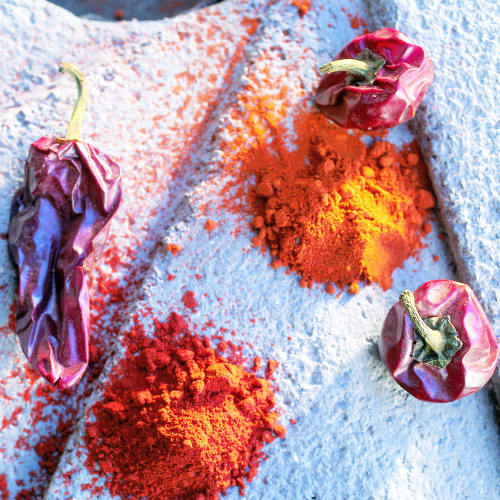Three Kings Sale - Up to 40% Off! Shop Sale
A Culinary Revolution: Columbus and Cuisine
Don Harris | October 2015




Last week the people of Spain celebrated Dia de La Hispanidad, a national holiday commemorating Columbus’s arrival in the Americas, on the same date as our Columbus Day. It is a celebration of Spain’s connection to the international Hispanic community and a pivotal moment in the history of the world.
How easy it is to imagine timeless Spain where the local harvest traditions have been going on for thousands of years. But, of course, it is not the case. Radical changes occurred in 1492: not only the final triumph of the 700 year struggle with the Moors on the plains of Granada, but, most notably, Christopher Columbus's arrival in the Americas. The meeting of civilizations transformed the world - through trade, war and the intermingling of ancient cultures. It was a watershed for Spain and its cuisine: the introduction of new foods from the Americas heralded a revolution in how Spaniards farmed, cooked and enjoyed food.

Think a moment. Can you imagine a piping hot mug of thick chocolate a la taza without the chocolate? Chorizos without smoky Pimentón de La Vera paprika? Then there is tortilla Española with nary a potato! It is amazing to think about, but that is the way it was before Ferdinand and Isabella sent Christopher Columbus to the New World. Much of what we think of as Spanish gastronomy did not exist 600 years ago.
Ferdinand and Isabella sent Columbus in search of rare spices. Seasonings such as black pepper were so precious that the monarchs hoped his voyage would discover a new route to the Spice Islands. Why were spices so crucial? Remember they did not have side by side refrigerators providing an unlimited supply of ice cubes to tumble into their glasses of Coke. They had no refrigeration at all. Pepper, along with sea salt, was a priceless preservative for their meats.
When Columbus returned from the New World, he headed straight to the Royal Court, which at the time was encamped at the Real Monasterio de Guadalupe deep in the mountains of western Spain. (Fernando and Isabel had an itinerant court which was often on the move in order to reinforce relationships across various parts of their realm. Before Guadalupe they had been in Sevilla.) There in the Mudejar monastery, nestled in a mountain valley, he presented his patrons with chili peppers, among other treasures. The king and queen were delighted.
Without delay the local Franciscan brothers sowed the pepper seeds in the monastery gardens – less than a day's journey from where smoked paprika is made from smoked peppers today! Thanks to the horticultural interest of Columbus, from that time forward the people on both continents enjoyed food that was flavored and preserved by smoked paprika.

Many other culinary treasures that the first explorers brought back to Spain were far more lasting than silver and gold. They changed the way of life for all of Europe. The list of foodstuffs is amazing: vanilla, chocolate, tomatoes, potatoes, strawberries, squash, corn, avocado, pineapples and peppers of all sorts. Where would Spanish cuisine be without them?
And the Spaniards introduced many of their own treasures to America. Can you imagine a time when there were no citrus fruits in California, Texas and Florida? Imagine the Wild West without horses? All of these were brought to the New World by the explorers and missionaries, along with wheat, rice, coffee, grapes and apples. Since Spaniards have always loved good food, Christopher Columbus made sure some Ibérico pigs were included on the first voyage. After all, how could a Spaniard properly dine without his pata negra ham?
We were surprised and delighted to learn that herds of pigs still live on certain barrier islands in Georgia, descended from Ibérico pigs left there by Spanish explorers. Still more amazing was the discovery that some of these pigs are now raised in Colonial Williamsburg, just miles from our retail store. In fact, today there are Virginia hams hanging in the smokehouse of the Governor’s Palace made from this unique pork!
When Columbus stepped ashore in the Bahamas 500 years ago, an explosion of change shook the world. As with all revolutions, there was much upheaval and loss. But there was also a marvelous new richness of culture, especially in the world of food. And the cuisine of Spain is a prime example, as it was transformed with a variety and richness as never before.

